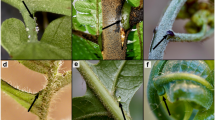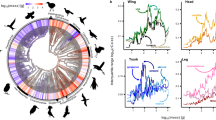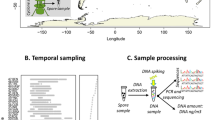Abstract
THE past summer has been so remarkable as regards these insects that a few notes from an old observer may be acceptable. The principal fact to be noticed is the extraordinary disproportion between the immense number of queens in spring (I cannot remember so many in upwards of fifty years' observations) and the scarcity of workers in the summer. It is scarcely an exaggeration to say that there were more queens to be seen in the spring than workers when these were most numerous, in September. To go back to the beginning, an entry in my diary on October 18, 1915, states that on digging out a nest poisoned with cyanide two days previously, in which all the active workers had been killed, â“œa lot of quite lively ones, mostly queens,â” was found.
This is a preview of subscription content, access via your institution
Access options
Subscribe to this journal
Receive 51 print issues and online access
$199.00 per year
only $3.90 per issue
Buy this article
- Purchase on Springer Link
- Instant access to full article PDF
Prices may be subject to local taxes which are calculated during checkout
Similar content being viewed by others
Author information
Authors and Affiliations
Rights and permissions
About this article
Cite this article
WALKER, A. Scarcity of Wasps. Nature 98, 148–149 (1916). https://doi.org/10.1038/098148d0
Issue Date:
DOI: https://doi.org/10.1038/098148d0
Comments
By submitting a comment you agree to abide by our Terms and Community Guidelines. If you find something abusive or that does not comply with our terms or guidelines please flag it as inappropriate.



